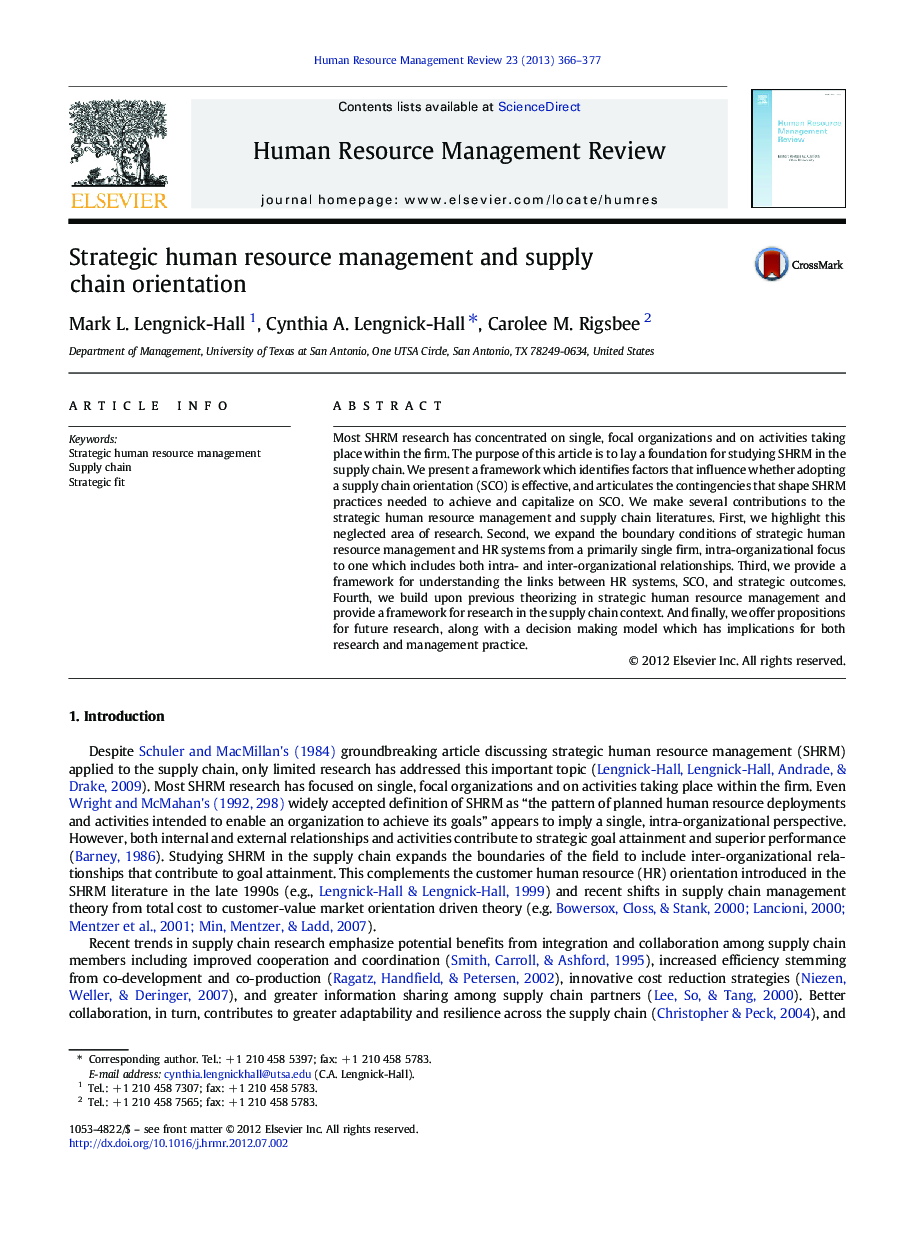| Article ID | Journal | Published Year | Pages | File Type |
|---|---|---|---|---|
| 879644 | Human Resource Management Review | 2013 | 12 Pages |
Most SHRM research has concentrated on single, focal organizations and on activities taking place within the firm. The purpose of this article is to lay a foundation for studying SHRM in the supply chain. We present a framework which identifies factors that influence whether adopting a supply chain orientation (SCO) is effective, and articulates the contingencies that shape SHRM practices needed to achieve and capitalize on SCO. We make several contributions to the strategic human resource management and supply chain literatures. First, we highlight this neglected area of research. Second, we expand the boundary conditions of strategic human resource management and HR systems from a primarily single firm, intra-organizational focus to one which includes both intra- and inter-organizational relationships. Third, we provide a framework for understanding the links between HR systems, SCO, and strategic outcomes. Fourth, we build upon previous theorizing in strategic human resource management and provide a framework for research in the supply chain context. And finally, we offer propositions for future research, along with a decision making model which has implications for both research and management practice.
► HR systems that support collaborative supply chain relationships lead to competitive benefits. ► Five HR system design principles support an integrative supply chain orientation. ► Three supply chain attributes determine the benefit of a tight fit among HR practices across firms. ► Choice of an adaptive, exportive, or integrative approach to SHRM is contingent upon five factors. ► A decision model is provided to aid in selecting the most effective HR system design.
